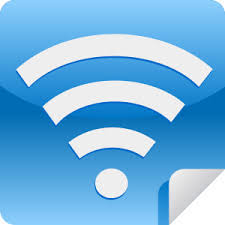Google to give Wi-Fi roaming another try
Wi-Fi roaming has been a topic of discussion for almost two decades. Now, Google is hoping to move the space forward with its new Orion Wifi platform.

Google announced a new platform called Orion Wifi that the company said would allow owners of stadiums, shopping malls, office buildings and other locations with Wi-Fi networks to make money from customers who roam onto their hotspots.
So far, two MVNOs – Google Fi and Republic Wireless – have agreed to use the platform. That will allow customers of Google Fi and Republic Wireless to automatically roam onto Wi-Fi networks that support Orion Wifi without having to do anything, such as log in.
Raj Gajwani, director of the Area 120 product incubator within Google, described Orion Wifi as an Airbnb for hotspots. He said Google Fi and Republic Wireless will pay venue owners to roam onto their networks because the per-GB cost of an Orion Wifi connection is less than what the MVNOs pay to their host cellular network operator (which is primarily T-Mobile).
Gajwani said Google would work to get other mobile network operators to join its new Orion Wifi effort – a key factor in the ultimate success of the platform.
To drive interest in Orion Wifi, Gajwani said Wi-Fi equipment manufacturers like Cisco Systems, CommScope (via its Ruckus brand) and Juniper Mist will support the platform in their products, thus making it easier for customers that purchase those products to switch on Orion Wifi capabilities.
Commercial real estate ventures like 5G LLC, GigaMonster, CA Ventures, Single Digits and Connectivity Wireless said they would offer Orion Wifi to their customers.
"Our 5G future is not going to work unless you have heterogeneous networks," Gajwani said.
Gajwani acknowledged that Orion Wifi is not the first product to attempt to create a market for Wi-Fi roaming across multiple markets and locations. For example, iPass sold a network of Wi-Fi hotspots to corporate customers; the company was acquired by Pareteum in 2019. Fon in Europe for years has touted a global network of millions of Wi-Fi hotspots. And US cable companies like Comcast and Charter operate millions of interoperable public Wi-Fi hotspots.
Further, the Wi-Fi industry developed the Hotspot 2.0 Passpoint standard almost a decade ago in order to support simplified access to public Wi-Fi networks. Using the technology, Boingo has so far inked Wi-Fi offloading agreements with AT&T and others.
More recently, the Wireless Broadband Alliance (WBA) – a collection of mobile network operators and others interested in linking cellular and Wi-Fi networks – announced it would take over Cisco's OpenRoaming effort, which seeks to create a federation of public Wi-Fi hotspots.
Despite all these efforts, most public Wi-Fi hotspots remain broadly inaccessible, forcing users to log in to each network individually. For major 5G providers like Verizon and AT&T, this setup ensures they can continue to maintain a direct connection – and a lucrative billing relationship – with their customers.
As Google's Gajwani explained, Orion Wifi adds a payment and settlement component to the Wi-Fi roaming sector – meaning, it shuttles money from operators like Google Fi and Republic Wireless to Wi-Fi hotspot owners.
"We haven't had that yet," he said.
But Gajwani acknowledged that Orion Wifi will need the support of major providers like AT&T, Verizon and Comcast in order to be successful. "It's a new idea, a new product," he said, explaining that it will take time to get the product off the ground.
— Mike Dano, Editorial Director, 5G & Mobile Strategies, Light Reading | @mikeddano
About the Author(s)
You May Also Like




_International_Software_Products.jpeg?width=300&auto=webp&quality=80&disable=upscale)







